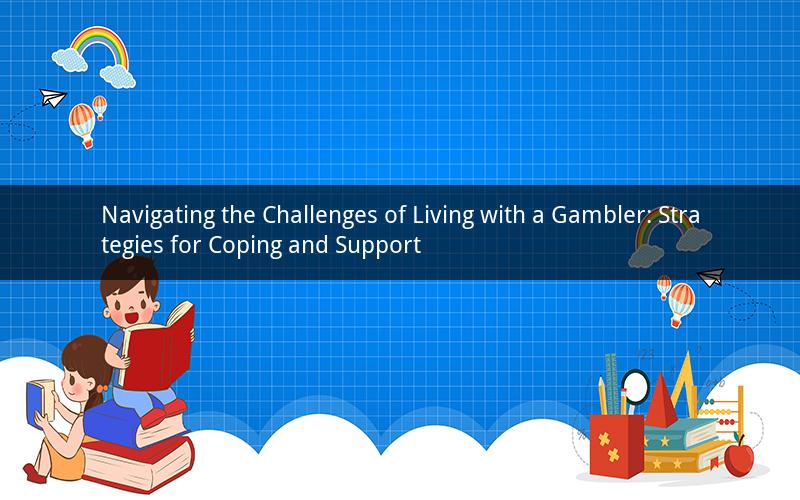
Living with a gambler can be a complex and emotionally taxing experience. Whether it's a family member, friend, or partner, the behavior of a person with a gambling addiction can lead to financial strain, stress, and strained relationships. This article delves into the challenges faced by those living with a gambler and offers practical strategies for coping and seeking support.
Understanding the Problem
1. What is gambling addiction?
Gambling addiction, also known as gambling disorder, is a progressive condition characterized by an inability to control the urge to gamble, despite negative consequences. It is often associated with a desire to win back money lost or to experience the thrill of gambling.
2. Why do people develop gambling addictions?
Several factors can contribute to the development of a gambling addiction, including genetic predisposition, environmental influences, and mental health issues such as depression or anxiety.
3. What are the signs of a gambling addiction?
Signs of a gambling addiction may include hiding gambling activities, lying about gambling habits, borrowing money to fund gambling, and neglecting personal responsibilities.
4. How does gambling addiction affect relationships?
Gambling addiction can strain relationships, leading to feelings of anger, betrayal, and sadness. It can also result in financial instability and increased stress for those living with a gambler.
5. Can gambling addiction be treated?
Yes, gambling addiction can be treated through various methods, including therapy, support groups, and medication. It is essential for the gambler to recognize the problem and seek help.
Strategies for Coping
1. Educate yourself about gambling addiction
Understanding the nature of gambling addiction can help you better support your loved one and recognize the signs of relapse.
2. Set boundaries
Establish clear boundaries to protect yourself from the negative effects of living with a gambler. This may include limiting contact with the gambler or establishing financial boundaries.
3. Focus on self-care
Take care of your physical and emotional well-being by engaging in activities that promote relaxation and stress reduction. This can help you cope with the challenges of living with a gambler.
4. Seek support
Joining a support group for family members of gamblers can provide a sense of community and practical advice for coping with the situation. Consider seeking individual therapy to help you process your feelings and develop coping strategies.
5. Encourage your loved one to seek help
Encourage your loved one to seek help for their gambling addiction. Offer support in finding treatment options and attending support groups. Remember that change must come from the gambler themselves.
Support and Resources
1. National Council on Problem Gambling
The National Council on Problem Gambling offers resources and support for individuals affected by gambling addiction. Visit their website at http://www.ncpgambling.org/ for more information.
2. Gamblers Anonymous
Gamblers Anonymous is a free, self-help organization that offers support for individuals struggling with a gambling addiction. Find a meeting near you at https://ga.org/.
3. Family members and friends
Reach out to family and friends who have experienced similar challenges. Sharing your experiences can provide comfort and guidance.
4. Therapists and counselors
Consider seeking professional help from a therapist or counselor specializing in gambling addiction. They can provide personalized support and coping strategies.
5. Online resources
The internet is a vast resource for information and support on gambling addiction. Explore reputable websites such as https://www.gamblingtherapy.org/ and https://www.gamblersanonymous.org/ for additional guidance.
Living with a gambler can be challenging, but there are strategies and resources available to help you cope and seek support. By understanding the problem, setting boundaries, focusing on self-care, and encouraging your loved one to seek help, you can navigate the challenges and work towards a healthier relationship.